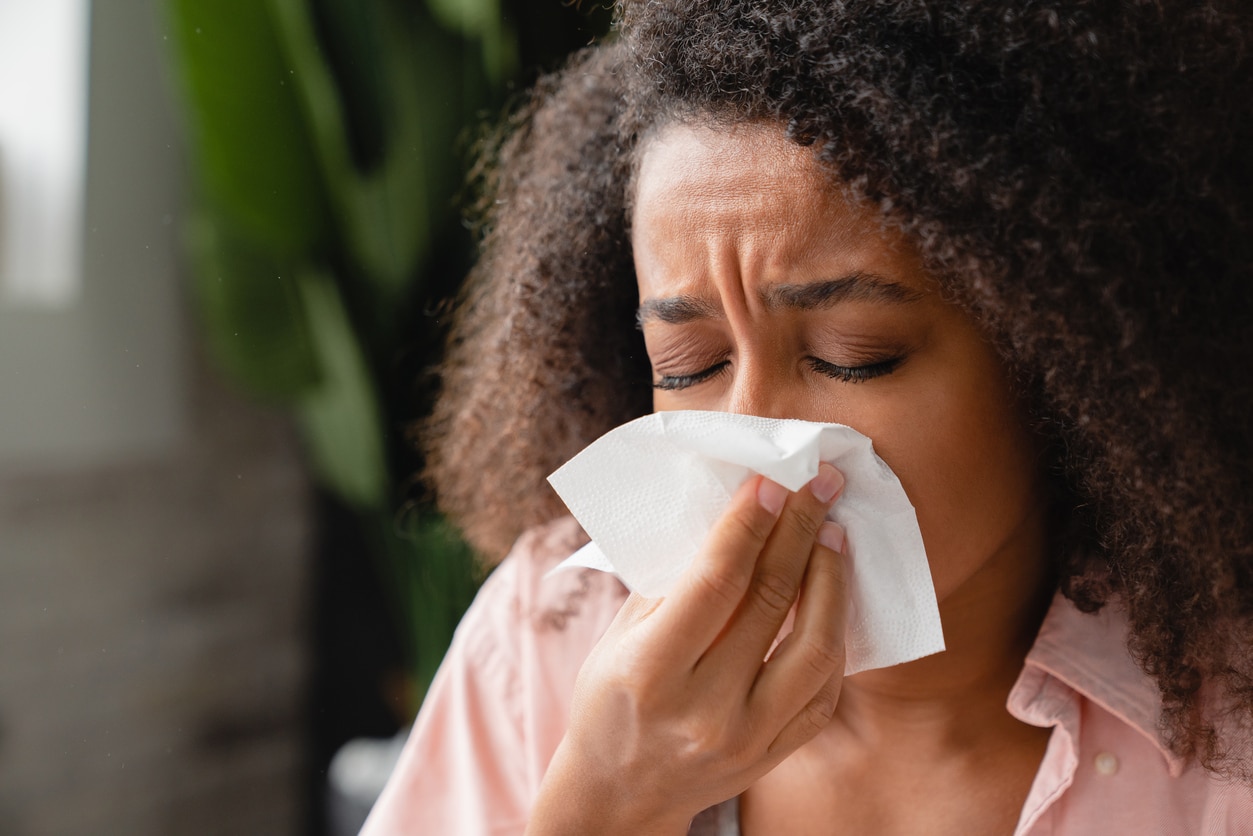Rhinitis can be either allergic or non-allergic. It is considered allergic when it is triggered by allergens and non-allergic when it is triggered by environmental factors.
Non-allergic rhinitis is similar in symptoms to allergic rhinitis. Symptoms may include but are not limited to:
- Stuffy or runny nose
- Sneezing
- Mucus in the throat
- Cough
Non-allergic rhinitis does not usually cause the itchy eyes, nose or throat associated with allergic rhinitis. Let’s look at some of the triggers for nonallergic rhinitis and how to treat it.
Causes for Non-allergic Rhinitis

Non-allergic rhinitis can be triggered by a number of environmental factors, including:
- Change in the weather
- Odors
- Smoke fumes
- Chemicals
- Barometric pressure change
- Medicines
- Long-term health problems
- Spicy foods
Keeping track of when your symptoms flair up can help your ENT specialist determine the cause of your non-allergic rhinitis and a treatment path.
Identification and Treatment of Non-allergic Rhinitis
Identification of non-allergic rhinitis is usually done by ruling out allergic rhinitis. Your ENT specialist may perform a skin prick or blood test to determine if you are experiencing allergic rhinitis. If they identify an allergy, you can treat the rhinitis by avoiding exposure to the responsible allergen.
Non-allergic rhinitis is harder to identify and is frequently ignored as a minor issue, but studies have shown that “untreated rhinitis does significantly increase the risk of other comorbid conditions such as obstructive sleep apnea, fatigue, headache, malaise, poor appetite and weakness.” Promptly addressing and seeking treatment from an ENT specialist for non-allergic rhinitis can greatly benefit your overall health. Some treatments include:
- Avoidance. Avoiding environmental triggers, including odors, air pollutants and chemical or smoke fumes, can help manage non-allergic rhinitis symptoms.
- Steroids. Available as a nasal spray, steroids can help prevent and treat swelling from non-allergic rhinitis.
- Antihistamines. Though antihistamines are designed to treat allergic rhinitis, antihistamine spray may also help manage symptoms of non-allergic rhinitis.
- Decongestants. Decongestants can help relieve the pressure in your nasal cavity by promoting mucus drainage.
- Nasal saline. Similar to decongestants, you can use a neti pot filled with saline solution and purified water to temporarily clear congestion from your sinuses.
Managing the symptoms of non-allergic rhinitis will free you up to better enjoy the sights and smells of Hickory Lake or a delicious meal free of congestion.
Contact one of our ENT specialists at Carolina Ear Nose & Throat – Sinus and Allergy Center today to help identify and treat your non-allergic rhinitis.